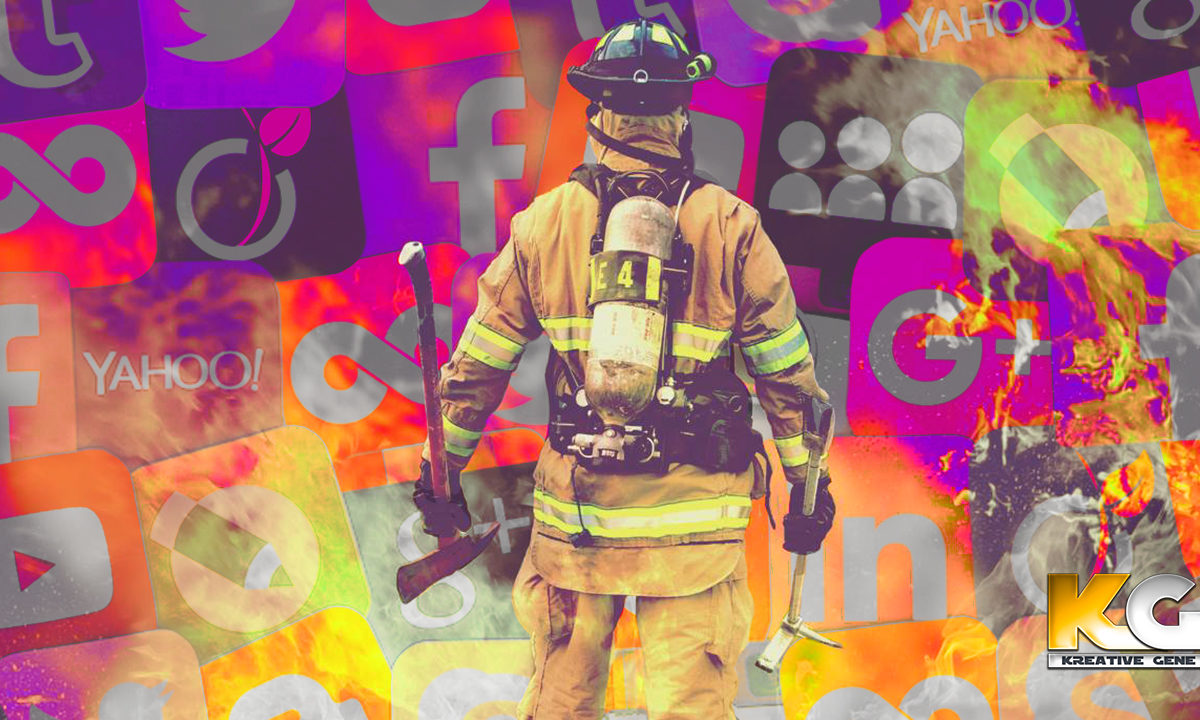On social media, things can move blindingly fast. Sometimes, it’s an Instagram post of an egg going inexplicably viral. But sometimes, it’s a PR crisis that seems to come out of nowhere.
Your best chance to make it through a social media crisis is to prepare ahead of time. Have a solid plan, a list of key stakeholders and responsibilities, and a clear chain of command.
Of course, it’s even better if you can prevent a crisis before it begins.
In this post, we’ll look at methods for spotting potential issues as they emerge and how to shut a problem down in the early stages. If that doesn’t work, we’ll show you what to do if you end up with a full-blown social media crisis management situation on your hands.
Before the crisis
An organization adopting a proactive communication strategy should take the following into consideration:
- Monitoring and response frameworks.
- Identifying key online powers (people and entities).
- Checking ownership of social media platforms.
- Being clear on the resources needed in the event of a crisis.
- Training the social media team.
- Including social media in risk assessment procedures.
- Controlling IT in the organization to ensure the required information gets out in due time.
Don’t Be Scared, Be Prepared
During the crisis
The damage has been done and the organization needs to rescue the situation. As you go about handling the situation through digital channels always:
- Monitor the situation to know what people are saying about you.
- Maintain consistency in messages sent across all channels.
- Think about packaging content for every social media account.
- Involve stakeholders to guard against rumors and wrong information.
- Be quick at responding especially if you have the right answers to queries.
- Reinforce accurate, updated communication across all departments and branches.
 After the crisis
After the crisis
Just because you have the crisis handled does not mean that is all. There are other issues to be attended to which include:
- Let your stakeholders know the crisis is over to restore the good name.
- The crisis management review should look at what strategies worked, which ones failed and figure out ways to improve.
The size of an organization is not a factor when a crisis occurs. Whether big or small, the organization requires an efficient digital communication strategy. This will ensure the public and other key stakeholders have all the information they need about the crisis. Withholding information that should be in the public domain is disastrous, as people will make speculations that could hurt your brand. The pressure could be too much, but if you have a great communications department, there is nothing to worry about.
If you want to have an easier time during a crisis, adhere to the before, during and after stages. If you at least foresaw a problem and planned on how to handle it, it will be much easier. This will help you regain consumers’ trust and your brand’s reputation.
8 Social Media Crisis Management Tips for Businesses and Brands
- Create a Social Media Policy
The best way to avoid any type of social media crisis is to create a solid social media policy for your company. It should provide clear guidelines to those who are posting on your brand page. Your social media policy will be different based on factors like your industry and the size of your company. Following are some subjects all social media policies should include:
- Guidelines for Copyright
- Guidelines for Privacy
- Guidelines for Confidentiality
- Guidelines for Bran
- Secure Your Accounts
Poor passwords and other social media security risks can quickly expose your brand to a social media crisis. In many cases, employees are more likely to cause a cyber-security crisis than hackers are. Do not share passwords among the various members of your team who need access to your social accounts. Always use systems like Hootsuite to control use permissions and grant the appropriate level of access. If you have a centralize access, then it also allows you to revoke access for employees who leave the company or move to a role that no longer requires them to post on social.
- Use Social Listening to Identify Potential Issues
A good social listening program can track and analyze an emerging issue on social media well before it turns into a crisis. Monitoring brand mentions can give you some advanced warning about crises. But if you really want to keep an eye out for a potential social media crisis, you should be monitoring social mentions daily. Social mentions is a metric that captures how people feel and talk about your brand on social platforms. There are many paid and free tools available that gives you advance warning of a crisis while it’s still in the early stages.
- Define What Counts as a Crisis to You
Many times people say rude things about you online. That maybe their experience, not actually a crisis. But if many people are saying the same negative things about you on social, all at the same time, that might be a crisis—or a potential crisis waiting to explode. What really identifies a social media crisis for a brand is a major negative change in the online conversation. Even if a many people posting negatively about your brand, it may be best to respond through customer service channels.
- Craft a Crisis Communication Plan
A company-detailed social media crisis communication plan allows you to respond quickly to any potential issue. Instead of debating how to handle things, you can take action and prevent things from getting out of control. Acting quick is important when any crises arises. Your crises management plan should describe the exact steps everyone will take on social media during a crisis—from top executives to the most junior employees.
- Engage – but don’t argue
When you post on social media and people start giving negative comments then you need to be calm and get engage with the comments instead of starting argument on public platform. As we’re talking about social media crises, simply issuing statements won’t cut it. You need to have to engage with people who may be saying very negative things about you brand on social platforms. Keep your replies short and avoid getting pulled into a long discussion of what went wrong.
- Communicate Internally
Communicating with team members is a crucial part of your crisis management response. This keeps everyone on the same page and will help to prevent misinformation and the spread of rumors. You need to make sure that everyone in the organization knows exactly what they should (or should not) say about the crisis on social media.
- Learn From the Experience
When you make it through your first social media crisis, take the time to debrief and examine what happened in past. Always keep a detailed record of everything you did, and how well it worked.
Take the time to examine your future social media plan. Think about what new you could add that would prevent a similar crisis from occurring in the future. And always review your crisis communication plan to look for opportunities to incorporate lessons learned.











